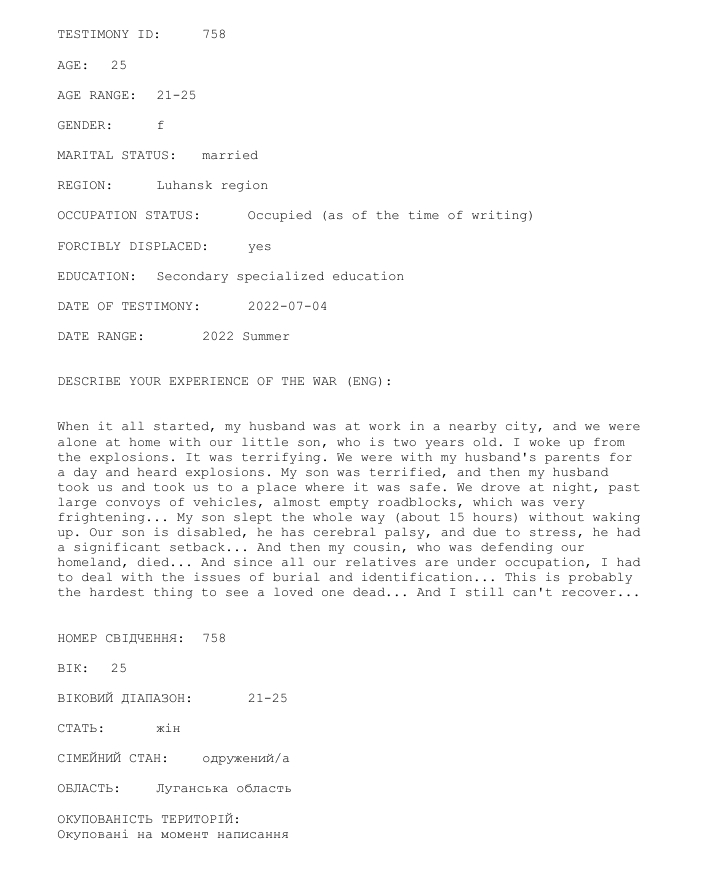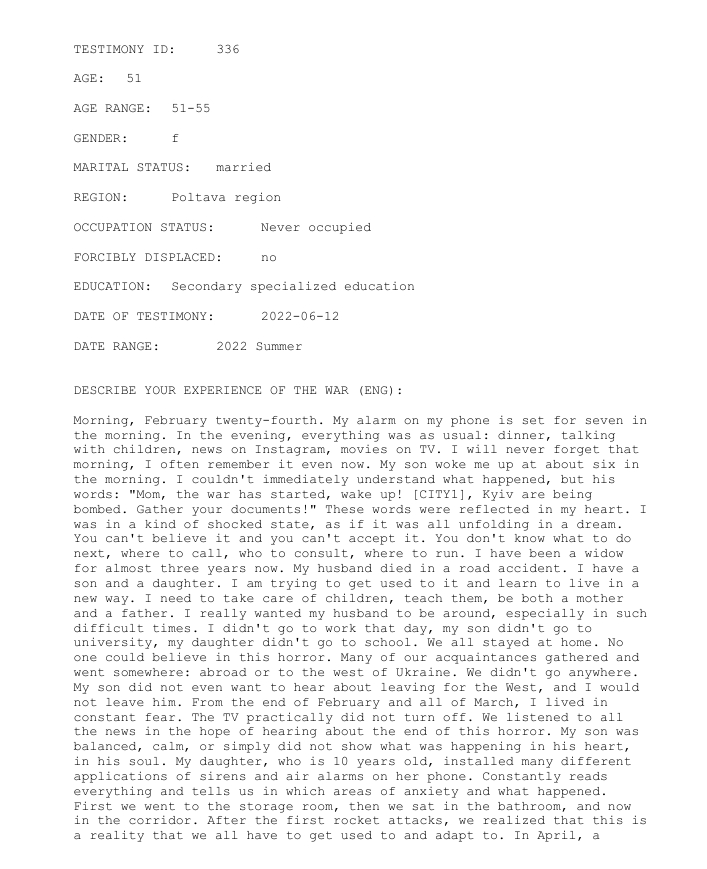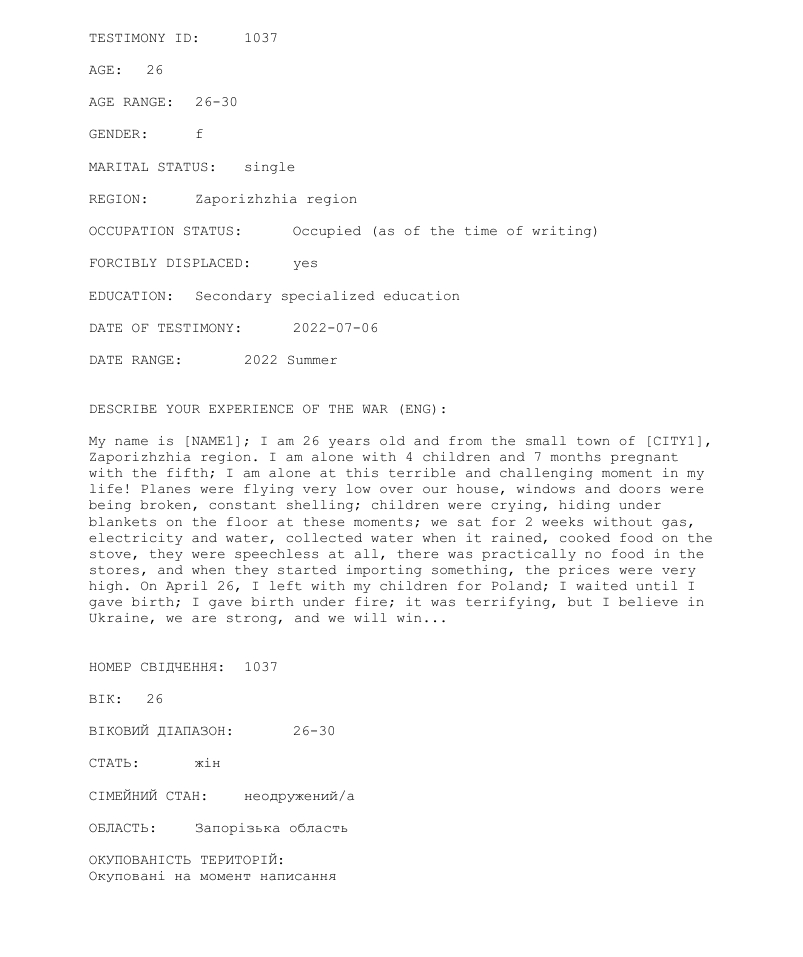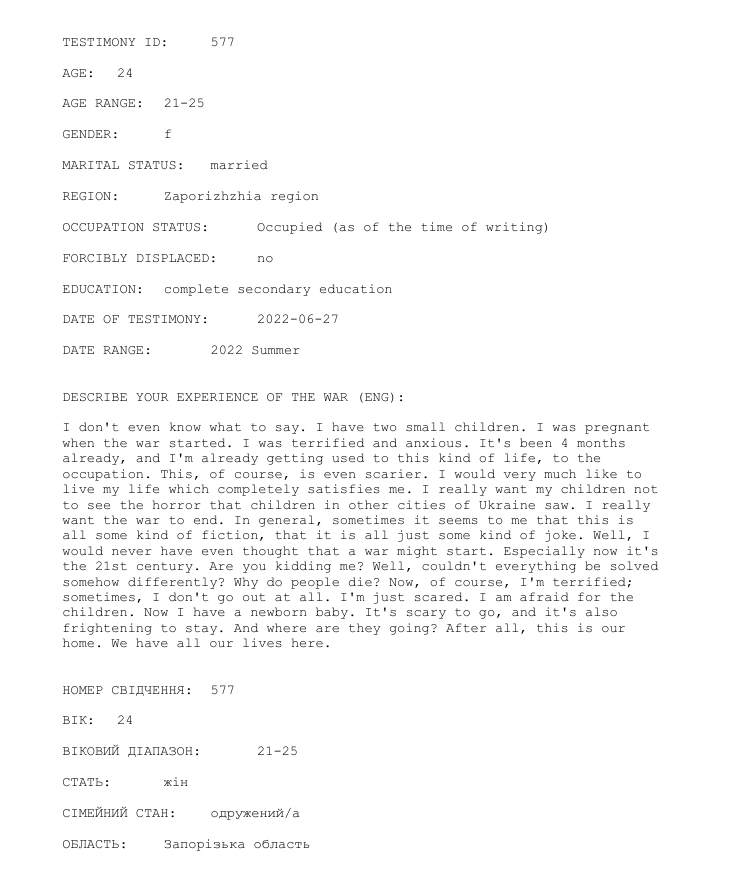Amplifying the Voices of Ukrainian Mothers Amid War
To mother in a war is to carry life amid forces determined to end it.
This exhibit depicts the lived experiences of Ukrainian mothers navigating the destruction of the Ukraine-Russia war while nurturing children, exploring the intersection of motherhood, war, and resilience. It features four women: a mother of a child with cerebral palsy (Testimony 758), a widow raising two children (Testimony 336), a single mother giving birth to her fifth child under shelling (Testimony 1037), and a mother caring for a newborn during occupation (Testimony 577). These testimonials share a common desire to care for and protect in crisis. However, they diverge in how trauma is processed, showing maternal experiences shaped by loss, displacement, and a duty to survive for not themselves alone, but for those who depend on them.
These testimonies are not passive reflections. Rather, they serve as windows into the larger themes of trauma, identity, and survival. In conflict, motherhood becomes both a burden and battleground. How can a mother soothe a frightened child while fearing for her own life? How can one maintain self when providing for another demands complete sacrifice?
Once a place of safety and identity, the home is violently transformed by war. Bedrooms turn into shelters. Kitchens become hiding places. Homes are no longer places of comfort, but reminders of loss. Displacement is not only physical but a disruption of identity. These women, living in exile or under occupation, struggle to adapt to both new environments and new selves. Their shifting identities make these testimonies powerful records of how conflict reforms personhood.
How we perceive these stories is largely dependent on memory and translation. The exhibit relies upon translated testimonies, stories that are influenced by both spoken and unspoken words. Idioms of mourning, cultural nuances, and emotional resonance may be lost or reshaped during translation, a process that is not just linguistic but also interpretive. As we transition between testimonies, it's critical to remain mindful of what could be changed, diluted, or even erased. This understanding encourages a more sensitive engagement with the human experiences each story holds, while also pointing to how easily historical memory can be changed or reconstructed through language.
These accounts go beyond surviving war. They reveal the silent strength of those who continue to provide and protect, even amid the most violent and unpredictable circumstances. Motherhood in conflict transcends caregiving; it is identity forged in fire, and love redefined by loss.



